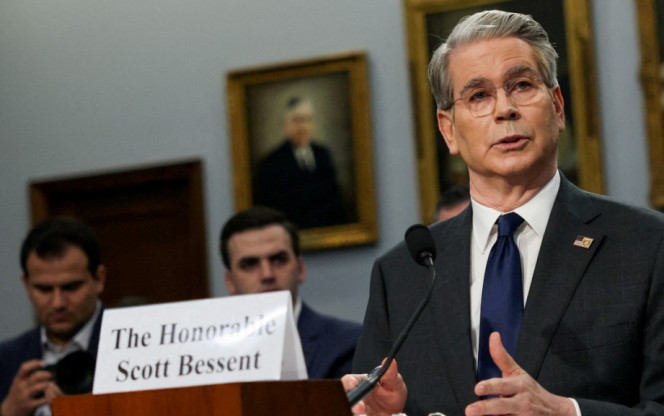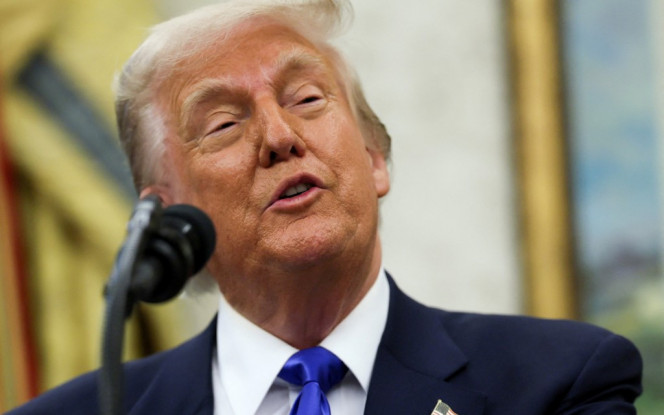China's RMB as an International Currency; Trump to Step Down After Term; Influx of Tourists to China; UK Launches Garfield AI

Regional Financial Cooperation Among East Asian Nations
Chinese central bank governor Pan Gongsheng marked his presence at the East Asia economic dialogue, affirming China's role in regional and global economic governance. Sina reports on the meeting involving East Asian finance ministers and central bank governors, where discussions centered on maturing mechanisms like CMIM, a multilateral currency swap arrangement crucial for financial stability in Asia. The platform sought to rebalance the Chinese influence across Asia by elevating local currencies.
This diplomatic move signifies China's drive to push the Renminbi as a viable international currency, reflecting a strategic shift from a US dollar-centric financial framework. Highlighting discussions on policy coordination, Sina underscores the importance of deepening the financial safety net within the region—a move that appeals to the likes of Japan and Korea, who share concerns over US trade policies' impact on their economies.
Fluctuations in China and Taiwan's Currency Exchange Market
Taiwan's efforts to keep the Renminbi exchange rate firm illustrates the broader geopolitical tensions affecting economic stability. Tencent covers Taiwan's half-year fiscal progress, evidencing an exchange rate rise to 7.19 RMB to the dollar, fostering an attractive asset market during global fiscal uncertainties.
Tencent’s analysis highlights how Taiwan's resilience amidst US-driven tariff volatility bolstered foreign investment influx into Chinese treasury bonds. The currency's movement encapsulates Asia's anticipation of continual US dollar depreciation, asserting over the US imports from prior quarters, heightening trade anxieties.
China-U.S. Trade Relations
The discourse on U.S.-China trade relations is further enriched by comments from Chinese Ambassador to the U.S., Xie Feng, as reported by Xinhua. Xie posits a firm stance against tariffs while advocating for equitable, respectful negotiations. This narrative reinforces China's commitment to fostering mutual economic benefits and resisting protectionist policies that threaten global market stability.
Ambassador Xie's remarks also accentuate the importance of fostering balanced global trade relationships and the potential for cooperation as a stabilizing force in the face of volatile international economic conditions. The underlying message relates to broader themes of cooperation over conflict, which could influence policy shifts in response to changing global trade dynamics.
China-Europe Economic Ties
Commemorating 50 years of China-Europe relations, reports from Xinhua celebrate burgeoning economic ties between China and European multinationals. This relationship is characterized by increased investments and partnerships, particularly in sectors like automobile manufacturing and green energy. The article emphasizes Chinese market potential as an innovative hub and growing consumer base, attracting European companies despite global economic uncertainties.
This development marks a strategic pivot towards deepening economic integration and highlights the mutual benefits of collaboration in areas of technology and sustainability. The reinforcement of these ties will undoubtedly play a crucial role in stabilizing global supply chains and influencing economic policy trajectories.
U.S. Foreign Policy and Leadership Dynamics
In a recent interview, U.S. President Trump explicitly mentioned not seeking another presidential term but indicated potential future candidates like Vice President James Watts and Secretary of State Mark Rubio as rising stars within the Republican Party. According to The Paper, Trump emphasized the importance of passing on the leadership baton to a new generation within the party, who could continue to advance the "Make America Great Again" agenda. This narrative reflects domestic political maneuvering, potentially aimed at consolidating support within the party while maintaining a grip on its direction.
From a broader geopolitical perspective, Trump's statements underscore the importance of leadership transitions in shaping U.S. foreign policy, especially as the country navigates complex international landscapes involving major powers like China. Preparing for future leadership within the party signifies a strategic move to ensure continuity and adaptability in addressing international challenges.
Australia-U.S. Relations
Australian Prime Minister Albanese's communication with Trump post-election victory, as chronicled by CCTV, is another dimension of geopolitical relations. The discussion pivoted around security alliances such as AUKUS and trade issues. This bilateral dialogue reflects ongoing strategic engagements and is indicative of Australia's aim to balance its relations with major powers within the Asia-Pacific region. It underscores a shared commitment to addressing regional security challenges while also navigating complex trade scenarios.
Middle Eastern Conflict Dynamics
Reports emerging from the United Daily News highlight Israeli military and political strategies, particularly regarding operations in the Gaza Strip. According to United Daily News, Israeli Prime Minister Netanyahu has gained approval for advancing military actions against Hamas, signaling a strategic expansion in military efforts. This move aligns with longstanding regional tensions and illustrates the complexities of geopolitical maneuvers in the Middle East, exacerbated by recent interruptions to cease-fire agreements.
Additionally, Israel's control over border regions and the distribution of humanitarian aid reflects an attempt to balance military objectives with international pressures to address humanitarian concerns. This dual approach may be intended to mitigate global criticism while maintaining security imperatives.
Indo-Pakistani Diplomatic Rifts Amidst Terrorism Incidents
The recent surge in terrorism-induced tensions between India and Pakistan receives focused coverage from BBC. The fatal attack in Pahalgam marked a severe escalation, reviving India’s threat of retaliatory measures. The narrative draws parallels with previous high-profile attacks, underscoring a grim resumption of hostile postures between the nuclear-armed neighbors.
BBC articulates the complex repercussions of retaliatory posturing, portraying it as a precarious balance between regional stability and national security prerogatives. Ajay Bisaria’s commentary from prior diplomatic engagements further contextualizes this repeat cycle of crisis and strategic counter-responses, admonished by deeper international diplomatic efforts.
Southeast Asian Tourism Influx to China's Hinterlands
Southeast Asia's touristic captivation with China’s western landscapes highlights an intriguing trend. Xinhua features Chinese destinations' newfound popularity amidst Thai tourists, drawn by the allure of pristine icy peaks and cultural immersion in Tibet's ethnic communities.
The symbiotic tourism boost, as detailed by Xinhua, underscores a flourishing bilateral tourism economy catalyzed by relaxed visa policies. The narrative aligns with a broader post-pandemic recovery mechanism where AI-driven guest interactions and cultural exchanges manifest economic patronage in global tourist hotspots.
Vibrancy in China's Tourism and Cultural Consumption
Holiday periods in China observe an elevation in tourism consumption, blending contemporary cultural showcases with technology-driven experiences. Xinhua, commenting on the 'May Day' festivities, exemplifies economic buoyancy through heightened logistics, inventive festivals, and rural tourism engagement.
The report enumerates the geographic diversification and scale of touristic development, indicating a strategic enhancement in service quality and customer experience through tech integration. This trend reverberates internationally, attracting global travelers and invigorating domestic economic circuits, a key driver in sustaining GDP growth momentum.
Garfield AI
In a groundbreaking development reported by World Journal, the UK has approved the establishment of an all-AI law firm named 'Garfield AI'. This firm is particularly notable for being founded by a seasoned London litigation lawyer and a quantum physicist, operating entirely without employing human lawyers. The firm leverages artificial intelligence to provide legal services, representing a major step in the automation of the legal sector.
The primary focus of Garfield AI is to assist small business owners and the general public in debt collection—a process traditionally seen as costly and cumbersome. The firm's foundational service includes drafting small claims processes for debt recovery through AI-generated demand letters, available at a significantly lower fee of only 2 pounds. It also prepares various court-required documents for just 50 pounds, including professional court submissions. This affordable pricing is aimed at democratizing access to legal proceedings, empowering individuals who previously could not afford legal aid to pursue justice.
The World Journal article highlights the massive scale of unpaid debt in the UK, estimated at 60 to 200 billion pounds annually. The co-founder, Philip Young, expressed hopes that their firm can enable ordinary people to engage in legal actions while helping relieve the burden on courts by reducing case backlogs. Despite the AI-driven approach, all AI-generated content is thoroughly reviewed by Young himself, ensuring quality and accuracy through sampling checks. This quality assurance is crucial as the global legal landscape is increasingly exploring efficient AI applications in various capacities.


